EPS or electrophysiology study is a test method directed to perceive how the electric driving forces leads through the pathways of your heart. In the event that the conduction pathway is typical, it shows your pulses are ordinary. On the off chance that if anomalous signs are recognized it shows arrhythmia or unpredictable heart thumps.
RFA or Radiofrequency Ablation is a kind of intrusive surgery directed to treat particular sorts of arrhythmias.
Both EPS and RFA can be directed simultaneously. Typically a specialist relegates both the methods together. EPS is directed to analyze the nearness of arrhythmia. In view of the nature and sort of arrhythmia RFA is led as a treatment method.
Some risk factors likewise pop when working with arrhythmia:
In spite of the way that India has the absolute best cardiovascular master and cutting edge super claim to fame care the expense of treatment is around 1/tenth of UK or USA.
The expense of the method relies upon the nature and sort of arrhythmia anyway the complete expense incorporates
| Country | Cost | Local_currency |
|---|---|---|
| Czechia | USD 12000 | Czechia 272280 |
| Greece | USD 11250 | Greece 10350 |
| India | USD 2500 | India 207875 |
| Israel | USD 18000 | Israel 68400 |
| Malaysia | USD 8000 | Malaysia 37680 |
| Poland | USD 5100 | Poland 20604 |
| South Korea | USD 20000 | South Korea 26853800 |
| Spain | USD 16000 | Spain 14720 |
| Switzerland | USD 19000 | Switzerland 16340 |
| Thailand | USD 7800 | Thailand 278070 |
| Turkey | USD 9500 | Turkey 286330 |
| United Arab Emirates | USD 19000 | United Arab Emirates 69730 |
Treatment cost
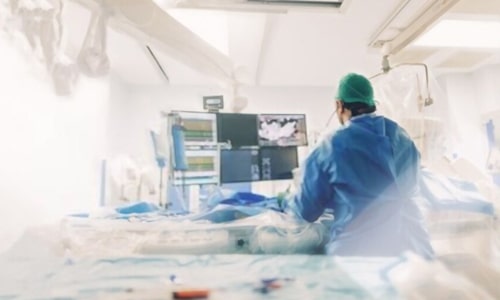
Some of the key inclusions which we provide as additional benefits of the package are:
We offer packages at reasonable pricing that include a variety of additional advantages, making it a better deal than paying for individual perks at the hospital. EPS or Electrophysiology Studies diagnoses the issue, and RFA is the treatment. Usually RFA is done in one sitting as a continual process with EPS. EP study stimulates as well as diagnoses heart rhythms which are abnormal. They also are an identification for affected heart areas. RFA is actually a minimally invasive procedure and is known as fulguration. In this process some of the electrical conduction system of your heart, or tumor or any other tissue which is dysfunctional is ablated via the heat from alternating current of medium frequency., We bring to you various benefits through our comprehensive package in tie up with Pushpawati Singhania Research Institute of India.
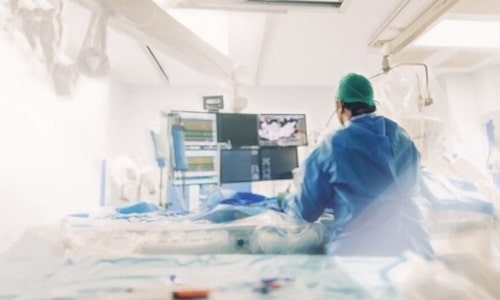
We provide numerous services for your medical journey, including:
We offer packages at reasonable pricing that include a variety of additional advantages, making it a better deal than paying for individual perks at the hospital. EPS or Electrophysiology Studies diagnoses the issue, and RFA is the treatment. Usually RFA is done in one sitting as a continual process with EPS. EP study stimulates as well as diagnoses heart rhythms which are abnormal. They also are an identification for affected heart areas. RFA is actually a minimally invasive procedure and is known as fulguration. In this process some of the electrical conduction system of your heart, or tumor or any other tissue which is dysfunctional is ablated via the heat from alternating current of medium frequency., We bring to you various benefits through our comprehensive package in tie up with Medicana Camlica Hospital of Turkey.

Dr. Rose Private Hospital located in Budapest, Hungary is accredited by JCI. Also listed below are some of the most prominent infrastructural details:

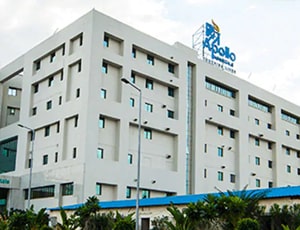
Types of EPS & RFA in Apollo Hospital and its associated cost
| Treatment Option | Approximate Cost Range (USD) | Approximate Cost Range (INR) |
|---|---|---|
| Electrophysiology Study (EPS) | 2788 - 4579 | 230506 - 365923 |
| Radiofrequency Ablation (RFA) | 3443 - 5509 | 282691 - 454919 |
DOCTORS IN 13 SPECIALITIES
FACILITIES & AMENITIES
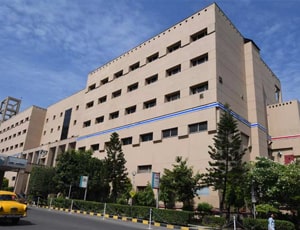
Types of EPS & RFA in Apollo Multispecialty Hospitals and its associated cost
| Treatment Option | Approximate Cost Range (USD) | Approximate Cost Range (INR) |
|---|---|---|
| Electrophysiology Study (EPS) | 2868 - 4535 | 233192 - 369624 |
| Radiofrequency Ablation (RFA) | 3345 - 5603 | 271049 - 458132 |
DOCTORS IN 13 SPECIALITIES
FACILITIES & AMENITIES

Types of EPS & RFA in Memorial Atasehir Hospital and its associated cost
| Treatment Option | Approximate Cost Range (USD) | Approximate Cost Range (TRY) |
|---|---|---|
| Electrophysiology Study (EPS) | 10800 - 15785 | 322069 - 473112 |
| Radiofrequency Ablation (RFA) | 11186 - 18211 | 335160 - 537997 |
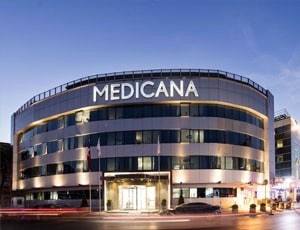
Types of EPS & RFA in Medicana Bahcelievler Hospital and its associated cost
| Treatment Option | Approximate Cost Range (USD) | Approximate Cost Range (TRY) |
|---|---|---|
| Electrophysiology Study (EPS) | 10838 - 15438 | 316121 - 472024 |
| Radiofrequency Ablation (RFA) | 11061 - 17983 | 334694 - 551125 |
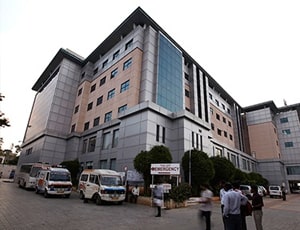
Types of EPS & RFA in BGS Gleneagles Global Hospitals and its associated cost
| Treatment Option | Approximate Cost Range (USD) | Approximate Cost Range (INR) |
|---|---|---|
| Electrophysiology Study (EPS) | 2830 - 4502 | 233980 - 372905 |
| Radiofrequency Ablation (RFA) | 3385 - 5658 | 279141 - 465814 |
DOCTORS IN 14 SPECIALITIES
FACILITIES & AMENITIES
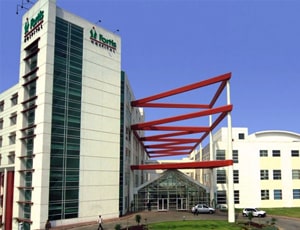
Types of EPS & RFA in Fortis Hospital and its associated cost
| Treatment Option | Approximate Cost Range (USD) | Approximate Cost Range (INR) |
|---|---|---|
| Electrophysiology Study (EPS) | 2535 - 4058 | 207924 - 331903 |
| Radiofrequency Ablation (RFA) | 3039 - 5083 | 249368 - 415526 |
DOCTORS IN 12 SPECIALITIES
FACILITIES & AMENITIES
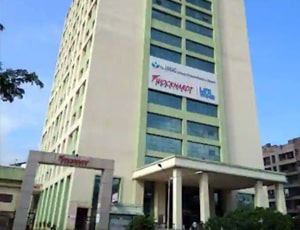
Types of EPS & RFA in Wockhardt Hospital, Umrao and its associated cost
| Treatment Option | Approximate Cost Range (USD) | Approximate Cost Range (INR) |
|---|---|---|
| Electrophysiology Study (EPS) | 2541 - 4069 | 207734 - 332503 |
| Radiofrequency Ablation (RFA) | 3054 - 5095 | 250051 - 417460 |
DOCTORS IN 13 SPECIALITIES
FACILITIES & AMENITIES
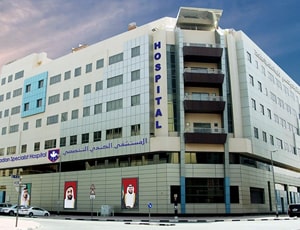
Types of EPS & RFA in Canadian Specialist Hospital and its associated cost
| Treatment Option | Approximate Cost Range (USD) | Approximate Cost Range (AED) |
|---|---|---|
| Electrophysiology Study (EPS) | 21085 - 31684 | 79762 - 116496 |
| Radiofrequency Ablation (RFA) | 22291 - 33941 | 84096 - 123366 |

Types of EPS & RFA in Indraprastha Apollo Hospital and its associated cost
| Treatment Option | Approximate Cost Range (USD) | Approximate Cost Range (INR) |
|---|---|---|
| Electrophysiology Study (EPS) | 2804 - 4490 | 230330 - 365072 |
| Radiofrequency Ablation (RFA) | 3321 - 5675 | 277707 - 452916 |
DOCTORS IN 14 SPECIALITIES
FACILITIES & AMENITIES
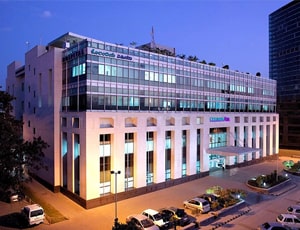
Types of EPS & RFA in Manipal Hospital, Yeshwantpur and its associated cost
| Treatment Option | Approximate Cost Range (USD) | Approximate Cost Range (INR) |
|---|---|---|
| Electrophysiology Study (EPS) | 2784 - 4495 | 228445 - 372653 |
| Radiofrequency Ablation (RFA) | 3379 - 5652 | 275044 - 465192 |
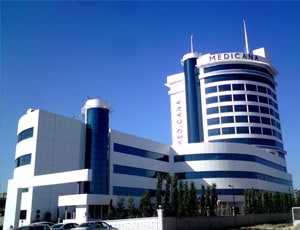
Types of EPS & RFA in Medicana Konya Hospital and its associated cost
| Treatment Option | Approximate Cost Range (USD) | Approximate Cost Range (TRY) |
|---|---|---|
| Electrophysiology Study (EPS) | 10748 - 15522 | 315013 - 467836 |
| Radiofrequency Ablation (RFA) | 11264 - 18240 | 346065 - 552027 |
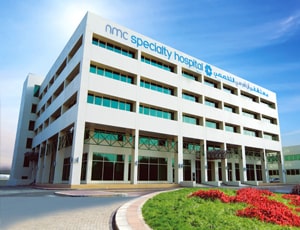
Types of EPS & RFA in NMC Specialty Hospital - Al Ain and its associated cost
| Treatment Option | Approximate Cost Range (USD) | Approximate Cost Range (AED) |
|---|---|---|
| Electrophysiology Study (EPS) | 21134 - 31865 | 78174 - 115949 |
| Radiofrequency Ablation (RFA) | 22086 - 33398 | 81615 - 122614 |
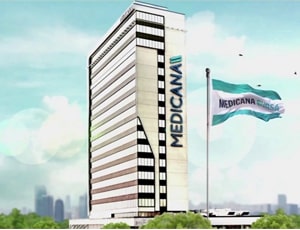
Types of EPS & RFA in Medicana Bursa Hospital and its associated cost
| Treatment Option | Approximate Cost Range (USD) | Approximate Cost Range (TRY) |
|---|---|---|
| Electrophysiology Study (EPS) | 10555 - 16061 | 323079 - 481827 |
| Radiofrequency Ablation (RFA) | 11275 - 18053 | 344683 - 542603 |
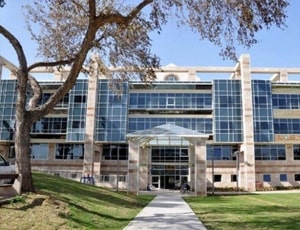
Kaplan Medical Centre located in Rehovot, Israel is accredited by JCI. Also listed below are some of the most prominent infrastructural details:
Radiofrequency ablation (RFA) is a surgical procedure in which heat generated from medium frequency alternating current is used to ablate a tumour, a part of the electrical conduction system of the heart, or any other dysfunctional areas. The ablation therapy requires local anaesthesia and is done in an outpatient setting.
RFA is a popular treatment for the correction of any abnormality in the electrical system of the heart, which is confirmed during electrophysiology studies (EPS). During this test, the electrophysiology of heart is studied and any abnormalities are noted. The procedure used to correct the identified abnormalities associated with electrophysiology of heart is known as the cardiac ablation procedure.
The steps in the RFA procedure depends of the type of disorder that needs to be treated or the part of the body targeted.
Abnormal electrophysiology of heart that cause cardiac arrhythmias can be destroyed by radiofrequency energy. During cardiac ablation procedure, radiofrequency energy is used in atrial flutter, supraventricular tachycardia, multifocal atrial tachycardia and ventricular arrhythmia. The electrode at the tip of a catheter is placed into the heart through a vein. This type of catheter is called ablator. The physician first maps the specific area that is abnormal before starting the cardiac ablation surgery.
RFA is used to treat tumours of kidneys, liver, lung and bone. After tumour diagnosis is confirmed, a needle-like RFA probe is placed inside the tumour. Through this probe, the radiofrequency wave passes and increases the temperature of the tumour tissue. The increase in temperature destroys the tumour during ablation procedure.
Radiofrequency ablation therapy can also be used in dermatological conditions by using different forms of alternating current. The radiofrequency ablation can also be used to treat skin lesions with few side effects and complications.
Radiofrequency ablation is used in the treatment of varicose veins. Under ultrasound control, a radiofrequency catheter is inserted into the abnormal vein and the vessel treated with radio-energy and closes the involved vein. Radiofrequency ablation is used to treat the saphenous vein, the saphenous vein, and the perforator veins.
Immediately after cardiac ablation procedure, the patient is shifted to a recovery room for a few hours. There may be some level of numbness or weakness for a while, which goes away in a few hours. You will be asked to lie quietly for at least three to four hours.
During the first 48 hours, you may feel sore because of excessive lying down or experience a heart-beat which is strange. Bruises may appear at the site of catheter insertion, however, it goes away within two days. You will be instructed to avoid vigorous activities and weight lifting and advised to remove any bandages at bed time. You must avoid the catheter insertion site from getting wet.
You will be given an appointment after RFA to have a repeat scan. The scan helps to know how well the treatment is done. You must avoid bending of squatting and watch out for swelling or bleeding at the site of catheter insertion. It is important to take short walks every day. You can return back to work after 48 hours or whenever your doctor gives a go ahead.
Ask your healthcare adviser for the best multiple options and choose the one that meets your expectations
Different hospitals have different pricing policy when it comes to the cost of EPS & RFA in Hungary. Some of the best hospitals for EPS & RFA offer a comprehensive package that covers the end-to-end expenses related to investigations and treatment of the patient. Typically, the package cost of EPS & RFA in Hungary includes the expenses related to the surgeon's fee, anesthesia, hospital, meals, nursing and ICU stay. There are many things that may increase the cost of EPS & RFA in Hungary, including prolonged hospital stay and complications after the procedure.
There are many hospitals across the country that offer EPS & RFA to international patients. For quick reference, the following are some of the leading hospitals for EPS & RFA in Hungary:
After discharge from the hospital, the patient has to stay for another 10 days in the country for complete recovery. This time frame is important to ensure that the surgery was successful and the patient is fit to fly back.
Apart from the EPS & RFA cost, there are a few other daily charges that the patient may have to pay. These are the charges for daily meals and accommodation outside the hospital. These charges starts from USD 50 per person.
Some of the cpopular cities in Hungary that offer EPS & RFA include the following:
The patient has to spend about 1 days in the hospital after EPS & RFA for proper recovery and to get clearance for discharge. The doctors team review the patient's recovery during this time with the help of blood tests and imaging scans. Once they feel that everything is on track, the patient is discharged.
There are more than 1 hospitals that offer EPS & RFA in Hungary. The above listed clinics are approved to perform the surgery and have proper infrastructure to handle EPS & RFA patients. Additionally, these hospitals are known to comply with the international standards as well as local legal requirements for the treatment of patients.
Some of the renowned medical specialists for EPS & RFA in Hungary are: